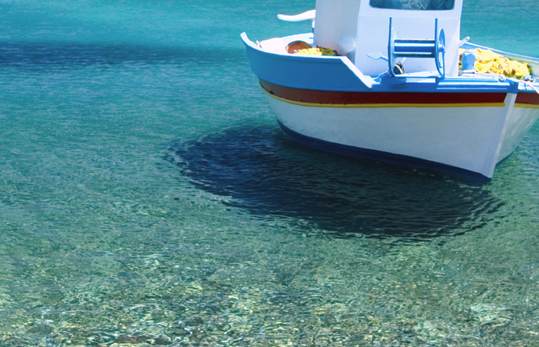Thassos Name
Thassos is believed to have been named after Thassos, the son or grandson of Aginoras, the king of Phoenicia. Thassos went to the island in search or Europe and he established himself there as its first king.Other ancient sources claim other names for the island, such as “Hieria”, by her chill summer breeze, “Athria”, by her clear sky, “Coast of Goddess Demetra”, by her fertile ground or “Dasos”, meaning forest in Greek, from the many forests on the island.
Ancient Years
According to Herodotus, the island of Thassos was constructed by the Phoenicians with Thassos as their king, who came to the island even before the Parians.The Phoenicians drove away the Thracians, who were till then the inhabitants of the island, and started occupying themselves with the mineral mining, as the island was rich in minerals.
The Phoenicians also developed the naval engineering and shipping activities along with agriculture and they also built fortress around the main town of the island. In order to assist to these activities, Greeks and other tribes came to the island which in time started turning into an autonomous state out of the Phoenician control. The predominant element of the island was now the Greek.
The island flourished in manufacture, mineral mining, industrial production but also arts and culture.
At the end of the archaic period, the inhabitants had built a state-of-the art wall around its town, made with marble and slate revealing the town’s prosperity. The wall had to be torn down by the Thassians themselves after the Persians invaded the area but it was partially rebuilt in 412 B.C.
In the following years and due to the Peloponnesian War the island is utilized by Athenians and it gradually loses its autonomy till around 385 B.C. when she regained its own control. But it was short period of recovery since it finally yielded to Philippe II of Macedonia in 338 B.C.
Hellenistic Period
During the Macedonian rule the island manages to keep a basic autonomy. During that period the inhabitants restore their temples and their fortification walls and an outburst of constructions and various wide and well organized settlements emerge throughout the island. It was indeed the most important period of construction and development of building activities. Other conquerors
Thassos, like most parts of Greece, came under the Byzantine rule at the time when the Byzantine Empire was flourishing. When the island came under the Byzantines the state of Thassos lost its power and Christianism started expanding rapidly although the authorities did not want to disappoint the Roman Empire. At the first phase of Byzantine rule the island became pretty prosperous but this declined as the empire’s enemies started raiding Thassos.Thassos was part of the Byzantine Empire, with intervals, till the 14th century A.D. when the Venetians took the authority. During this time the island and its commercial activities flourished until Sicilians, Slavs, Greek and Spanish pirates devastated all the development and positive progress of most fields during the last centuries.
Finally, at about 1455 A. D. and after the destruction of the Byzantine Empire, the Turks took over the island and left it almost uninhabited as almost all its inhabitants were transferred to Constantinople.
After years of harsh domination and cruel tax systems the Russian fleet defeated the Turks and a ship came to island which was liberated only for four years. When the Sultan returned to the island’s domination, his oppression and cruelty was much harder till the beginning of the 19th century when the Sultan gave the island as a reward to the Egyptian Mehmet Ale. He was pretty fond of the island and let the inhabitants create their own governance system made of communities.
Finally Thassos was shortly liberated during the Greek Revolution in 1821 but this only brief as the Neo-Turks re-established their constitution and all the rights and privileges of the island were taken away from them till the Balkan Wars at 1912, when Thassos was finally free.
Christmas in Greece is an experience in itself as it is a holiday celebrate...
Read more ›








 BACK TO LIST
BACK TO LIST